Republicans Will Hold The House, And Are Likely To Add To Their Majority
While the battle for the Senate remains up in the air, the Republican majority in the House remains secure.
While the battle for Senate control remains up in the air, and it’s unclear what will happen in several Governor’s races around the country, there’s little suspense when it comes to the House of Representatives. By all estimates and projections, Republicans will retain the majority they won in that chamber in 2010 and, indeed, look poised to expand upon it:
One year after plunging the country into what was then regarded as a near-apocalyptic 16-day shutdown of the federal government, House Republicans find themselves, improbably, in their strongest position politically since the earliest days of their majority in 2011.
With the shutdown fading against the backdrop of other domestic and global calamities, Speaker John A. Boehner’s gang has not only stabilized itself and patched up the self-inflicted wound that was the shutdown, but it also stands a good chance of expanding its majority in the Nov. 4 midterm elections. If all goes as Republicans hope, it could be the largest GOP majority since one of Boehner’s political heroes, Nicholas Longworth (R-Ohio), held the speaker’s gavel 85 years ago.
The long-embattled Boehner (R-Ohio) finds himself in this position due to a combination of luck and resilience, as well as some significant missteps by his Democratic adversaries. It also helped that, to some degree, the notoriously contentions GOP rank and file decided to retreat from the spotlight and let the public anger toward Washington settle on President Obama.
As Politico notes, getting to that bigger majority won’t be easy for the GOP, but it’s certainly within the realm of possibility:
House Republicans have been destined for modest gains in the midterms despite a favorable political environment. Now, just five weeks until Election Day, the party is raising its ambitions, jumping into Democratic strongholds long thought to be beyond the GOP’s reach.
The goal: Achieve their biggest House majority since Harry Truman’s presidency.
Over the past several weeks, the National Republican Congressional Committee has reserved millions of dollars of TV advertising time in two House districts — one in upstate New York, the other in northern Maine — that broke sharply for Barack Obama in the 2012 presidential election but where GOP prospects have been on the rise.
In the coming days, the House GOP campaign arm is polling to gauge whether to invest in three other blue congressional districts that have only recently come onto the national radar, according to two sources familiar with the deliberations. Two of them comprise the eastern, more liberal half of Iowa. The other is in Obama’s native Hawaii.
The goal is to broaden a political map that, much to the GOP’s frustration, has remained stubbornly narrow. Thanks to a recent round of redistricting that limited the number of seats vulnerable to an opposing party takeover, the House playing field comprises only around three dozen districts. If the election were held today, Republicans, who currently have a 17-seat majority, would gain perhaps six or seven seats — short of the 11-seat benchmark they’ve set.
So the GOP is venturing into places one wouldn’t expect. The stakes are high: Republicans are trying to achieve a governing majority, something that has eluded John Boehner in his tenure as speaker. If they can meet their 11-district goal, Republicans will have 245 seats, their largest delegation since 1949. It would also give the party a buffer heading into a 2016 House election expected to be more generous to Democrats.
(…)
Some Republicans are skeptical the party will ultimately pour money into the Iowa or Hawaii races when the polling is complete. The NRCC is facing a serious cash shortfall — through the end of August, it had been outraised by its Democratic counterpart by more than $33 million — that has limited the amount of money it can spend in races.
Republicans have also had the burden of defending seats in expensive media markets, draining their cash reserves. The NRCC has reserved nearly $5 million in commercial air time in New Jersey, southwest Iowa and northern Virginia to defend the seats of three retiring GOP lawmakers.
Asked if the NRCC would spend in the eastern Iowa or Hawaii races, Daniel Scarpinato, a committee spokesman, responded: “We have phenomenal candidates who are carrying their races on their own and putting the Democrats on defense.”
Airing TV commercials, however, isn’t the only way national Republicans can assist their underdog candidates. They’re also dispatching surrogates to help with fundraising and draw media attention, including Boehner.
Aides to the Ohio Republican say they’re leaving Boehner’s schedule for the final week of October open for the speaker to make visits for candidates in races that are breaking late. Last week, the speaker made a visit to Maine, where he raised money for Poliquin.
Other big names are also getting involved. Republican Rod Blum, a software company owner who is running for one of the eastern Iowa seats, on Friday will campaign with New Jersey Gov. Chris Christie. Later in the month Blum will hit the trail with Kentucky Sen. Rand Paul.
Of the 435 seats in the House of representatives, RealClearPolitics currently lists 17 as being “toss-up” races, meaning that the polling that has been done has the candidates within the margin of error of each other. Of those 17 toss-ups, all but four of them are held be a Democrat running for re-election or a Democrat retiring at the end of the year.In addition to that, there are two House seats currently held by Democrats that are listed as “Likely GOP,” Utah’s 4th Congressional District where Mia Love seems likely to defeat her Democratic opponent after falling short two years ago, and North Carolina’s 7th District, which is being vacated by a retiring conservative Democrat. On the other side of the ledger, there are two Republican seats, in New York and California respectively, that are currently listed as leaning Democratic. While Congressional districts are notoriously hard to poll, this suggests that there’s at least a good chance that the GOP could gain as many as 7 or 8 seats, and possible even the 11 seats that they set as a goal earlier this year. \
The reasons for this Republican strength in the House are fairly obvious. As we’ve seen before, even in years where there is a wave on one side of the aisle or the other, the re-election rate for the House is typically at least 90% and usually quite higher. So, once you’ve actually won a House seat it takes something special from your opponent, or some spectacular failures on your part, to lose that seat. In addition to the inherent advantages of incumbency, redistricting in many states that is either highly partisan or specifically designed to create districts where incumbents are relatively safe from being challenged in a General Election. Additionally, thanks to the 2010 elections, the GOP enjoys majority support in state legislatures throughout the country, and most predominantly in the South, where the process of drawing district lines tends to be more highly partisan regardless of which party is in power than it seems to be in other parts of the country. Finally, Republican incumbents in the south are often protected by the fact that Federal law tends to push legislatures to create at least a few “majority-minority” districts where African-American and other minority candidates will dominate, which means that white suburban and rural voters that tend to vote more Republican will be concentrated in the districts that make up the rest of the state. Given all of that, Republicans have advantages in House elections that are unlikely to disappear until after the next round of redistricting, and probably beyond that.
The most notable thing about all of this, of course, is the contrast it forces with where things were just a year ago. It was, after all, just a year ago that the Federal Government was forced into a sixteen day long shutdown thanks solely to Republicans in the House and Senate who were pushing a foolish and unrealistic scheme to defund the Affordable Care Act. By the time it was over, public approval of Congressional Republicans was at an historic low and Democrats were performing strongly in the Generic Congressional Ballot. Many analysts forecast that this would bode ill for the party in the upcoming midterms. Instead, the shutdown seems to have utterly disappeared from public memory, at least to the extent that they seem inclined to punish the GOP over it. To a large degree this is likely due to the serious of intervening events that have come to light since the shutdown ended ranging from the rollout problems for the PPACA exchanges, to Ukraine, the rise of ISIS and a whole host of other issues that have pushed the events of a year ago out of the minds of most voters. Because of that, the GOP not only stands to hold onto the House but gain seats there and is increasingly looking like it will gain control of the Senate. The lessons that the GOP draws from that fact, however, are likely to be ones that cause them problems in the future.
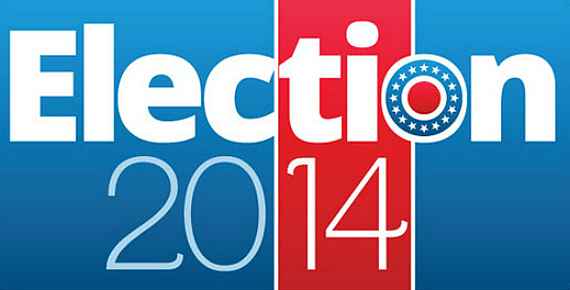

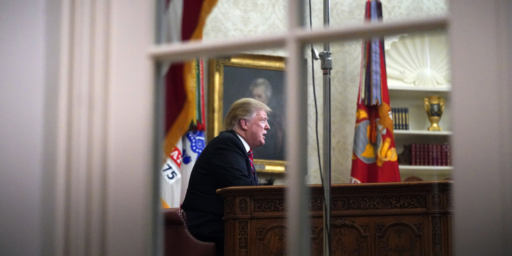
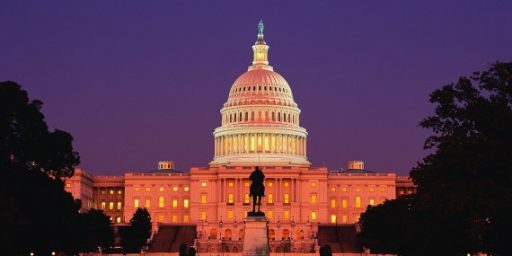
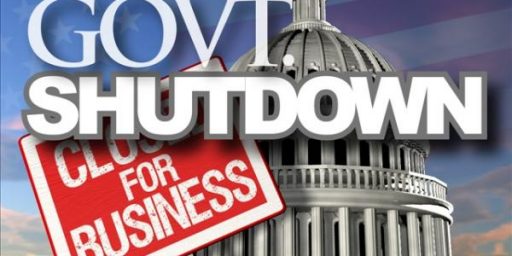
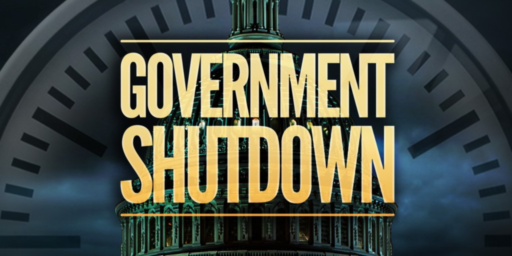
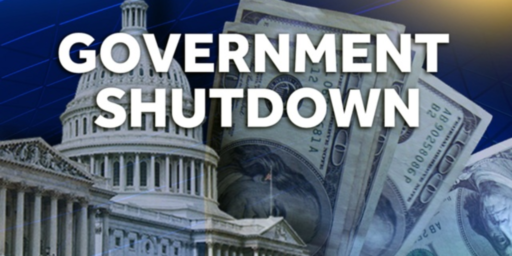
Others…including Florack…were talking about 25 seats at one time.
6-7 seats is hardly a wave…especially given the circumstances.
OK, am I missing something, or did Politico just imply that the NY, DC, and Omaha media markets are among the most expensive?
Everyone knows that the Democrats are going to keep the Senate and retake the House due to the 90+% popularity of the National Conversation of Guns’ that President Obama is leading with the full support of all Democrats.
and I keep getting downvoted on other threads for mentioning that the electorate are a box of rocks.
-Kay
@gVOR08:
I agree that the electorate are a bunch of rocks. How else can you explain
Electing a guy with no experience other than organizing a community picnic
to 2 terms as president?
Pelosi predicts 2016 Democratic sweep
Gerrymandering
Republucans want you know they are humans too…by lying about being humans too .
Incredible .
http://talkingpointsmemo.com/livewire/republicans-are-people-too-stock-photo
It may just be me, but I’m failing to see the bottom line in this story. I don’t know whether the predictions are credible or not, but what if they are? What will happen? Two more years of gridlock? Failure to agree on immigration reform? More bloviating about Obama? This is different because…?
Things that I don’t see the GOP doing even with a bullet proof majority:
1. Repealing and replacing Affordable Care–While they might repeal it (and I’m not altogether opposed to them doing so) they will never replace it because they don’t got nuthin’ to replace it with!
2. Expanding the GWT and declaring war on ISIS–they will keep criticizing Obama for doing nothing while continuing to do nothing themselves
3. Buliding “the wall” in the southwest–no money to do it with and no resolve to find the money–more dithering and bloviation about “the brown plague” though.
4. Enacting reforms that will increase employment and improve the state of Middle Class America–again, they got nuthin’
5. Tax reforms of any sort–they might want to cut taxes on the rich, but it’s too politically controversial.
6. Take actions that will reduce the deficit–again, no guts, so no glory.
On the positive side, the fact that such a bullet-proof majority accomplished nothing might damage their brand. I think it worth a spin–low downside risk, high upside payout.